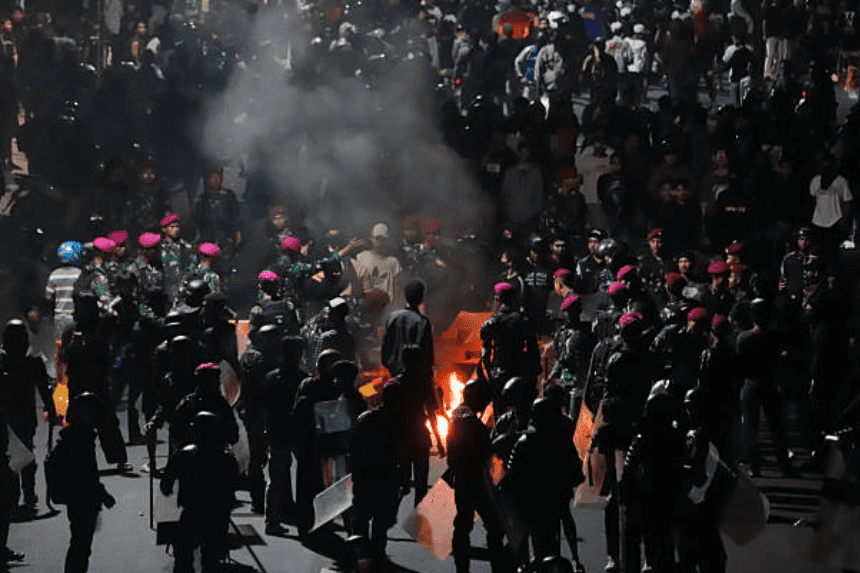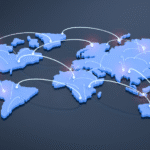A lot of people in Southeast Asia are showing their support for the rallies in Indonesia over growing living costs and political inequity. After a delivery rider died in a recent protest, people in nearby nations are helping Indonesians, especially gig workers, by using delivery services like Grab and Gojek.
People in Malaysia and the Philippines are utilising these applications to order food for Indonesian riders. Many of them are having trouble making ends meet because protests are making life difficult. These modest actions have become a strong symbol of solidarity across borders, bringing together South-east Asian communities under the viral hashtag #SEAblings.
Why Are People Sending Food to Indonesia?
Delivery drivers are frequently the most important people in the economy in cities like Jakarta and Surabaya. But since the protests in Indonesia started, many businesses have witnessed a big drop in orders since roads are closed and businesses are closed. In response, people from Singapore, Thailand, and the Philippines have started using Grab and Gojek to purchase food, not to have it delivered, but as gifts for the riders.
Some users give drivers clear instructions, telling them to retain the food or share it with others. For a lot of riders, these commands are not simply useful; they are necessary. Videos on social media show drivers crying and thanking strangers abroad for what they regard as unexpected compassion. Here is the link to our article on Parade Protest Showdown.
What Made People in Indonesia Protest?
On August 25, the turmoil that spread across the country started in Jakarta. People were protesting what they thought were too many benefits for government workers in a time of worsening economic conditions. Protests got worse after a police car inadvertently murdered 21-year-old Affan Kurniawan, a Gojek driver, as he was working during the protests.
The act caused even more anger, which led President Prabowo Subianto and national police leaders to apologise in public. The government has promised to cut back on some benefits since then, but the protests have moved to places like West Java, Bali, and Lombok.
What Are Southeast Asians Doing to Show Support?
Online, acts of cross-border solidarity are becoming more popular. People in Cebu, Philippines, are organizing donation campaigns and translating guidance into the languages spoken there to make it easier for others to give. A few Malaysians and Singaporeans have ordered more than one dinner for Indonesian riders. A rider in one example got a lunch and bottled water from a user in Singapore and shared it with his coworkers.
These digital acts of solidarity show that people in the region are working together. A lot of people from Southeast Asia believe they can connect to the problems that Indonesians experience, like corruption in the government and inequality in the economy. This common experience has heightened emotional reactions and motivated collective action. Here is the link to our article on the Trump Protest Surge.
What do delivery apps do?
Grab and Gojek are important parts of Southeast Asia’s gig economy. There are almost 1.5 million delivery riders in Indonesia alone. These platforms not only make money, but they also support important services, especially in rural or crowded locations.
Since the protests started, these apps have gotten a lot more orders from outside of Indonesia. It’s not known how extensive the support movement is, but early evidence shows that more people in Southeast and East Asia are getting involved.
Final Thoughts
The protests in Indonesia are no longer just a national issue; they are now a regional hotspot for bigger issues like inequality and how the government works. Indonesians are protesting in the streets, and their neighbours in Asia are doing the same thing online. This shows that empathy and action can traverse borders. These deeds, whether it’s a simple food order or a word of solidarity, show that there is a common spirit in Southeast Asia. Even when there is political upheaval, the people’s voice and unity are greater than ever. Protests in Indonesia are no longer just about one country; they show how strong the region is.








